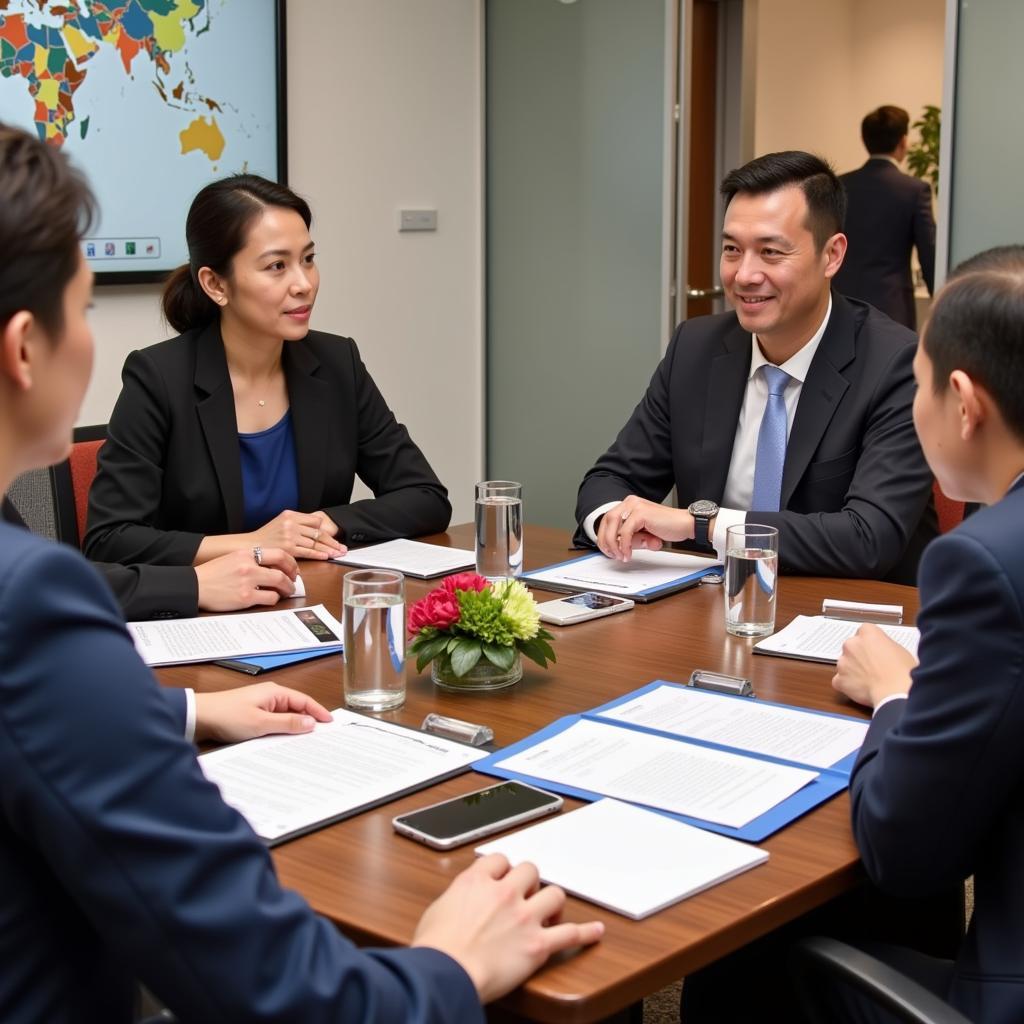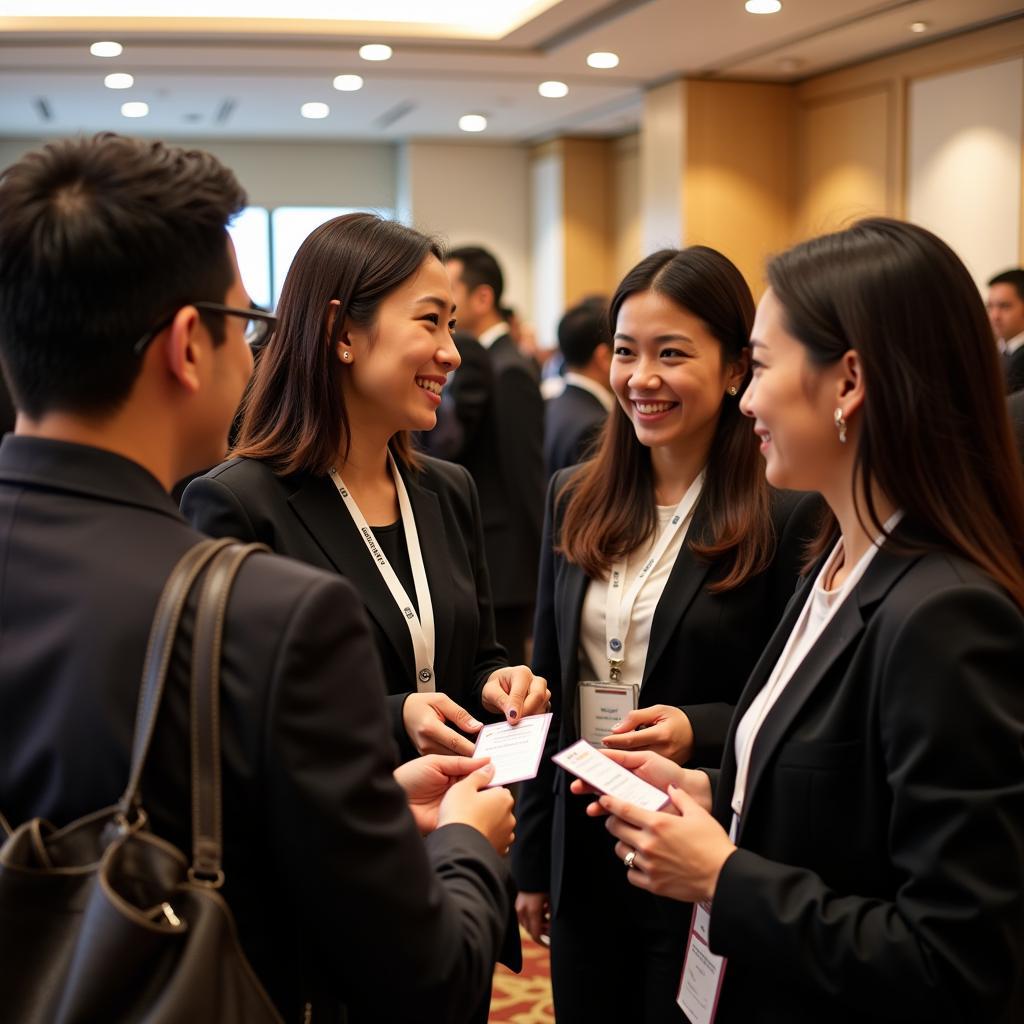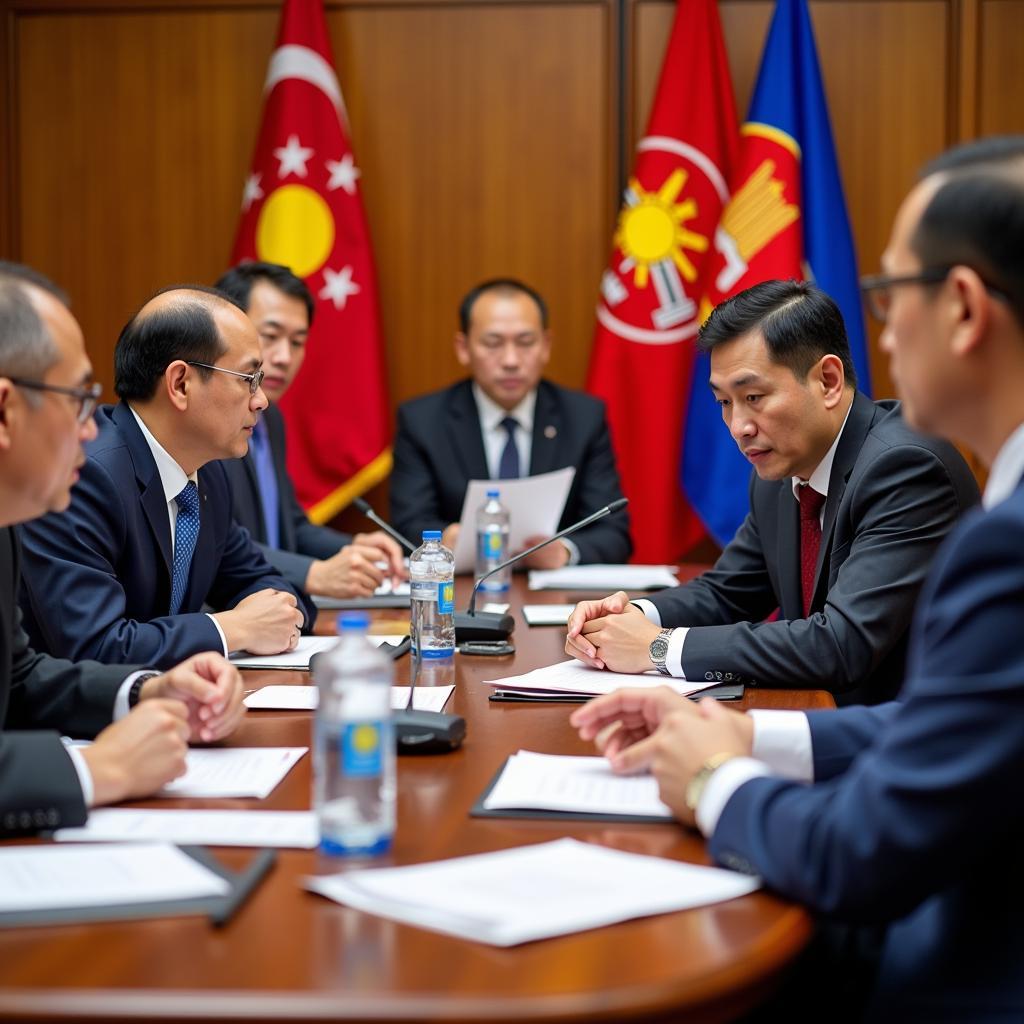The Asean Agreement On Movement Of Natural Persons (MNP) is a key initiative aimed at facilitating the freer flow of skilled labor within the Southeast Asian region. This agreement acknowledges the importance of human capital in driving economic growth and regional integration. It seeks to streamline processes for qualified professionals, business visitors, and investors to move more easily between ASEAN member states.
Breaking Down the ASEAN MNP: Key Provisions and Objectives
The asean agreement on the movement of natural persons aims to foster greater economic dynamism within ASEAN by promoting the mobility of skilled professionals. This includes simplifying visa procedures, recognizing professional qualifications, and providing greater certainty for businesses operating across borders. Ultimately, the agreement aims to contribute to a more integrated and competitive ASEAN Economic Community.
What are the specific goals of the MNP? The agreement prioritizes several key areas, including:
- Facilitating temporary entry for business visitors: This allows for easier cross-border business activities, fostering trade and investment.
- Streamlining processes for contractual service suppliers: This makes it simpler for businesses to engage skilled labor from other ASEAN countries for specific projects.
- Promoting the mobility of skilled professionals: This encourages knowledge sharing and skills development within the region.
- Enhancing regional competitiveness: By fostering a more mobile workforce, the agreement aims to boost ASEAN’s overall economic performance.
 Business meeting discussing ASEAN MNP implications
Business meeting discussing ASEAN MNP implications
How Does the ASEAN MNP Benefit Businesses?
The agreement offers significant advantages for businesses operating within ASEAN. Easier movement of personnel translates to reduced costs and increased efficiency in managing regional operations. It also provides access to a larger pool of talent, enabling companies to fill skill gaps and drive innovation. Imagine needing a specialized engineer for a project in another ASEAN country. The MNP can make finding and hiring that individual significantly easier.
Challenges and Future Directions of the ASEAN MNP
While the afmm asean and MNP has made considerable strides, challenges remain. These include harmonizing regulations across different member states and ensuring effective implementation of the agreement’s provisions. Future developments may focus on expanding the scope of the MNP to include a wider range of professions and further streamlining administrative processes.
“The ASEAN MNP is a critical tool for enhancing regional connectivity,” says Dr. Amelia Tan, a prominent economist specializing in Southeast Asian affairs. “By facilitating the flow of talent and expertise, it creates a more dynamic and integrated economic landscape.”
What are the key benefits of the ASEAN MNP for individuals?
For skilled professionals and entrepreneurs, the MNP presents opportunities for career advancement and regional mobility. It opens doors to new markets and allows individuals to gain experience working in diverse cultural settings.
“The ability to work across borders within ASEAN is a game-changer for young professionals,” adds Mr. David Lee, a human resources consultant based in Singapore. “It offers unparalleled opportunities for personal and professional growth.”
 ASEAN professionals networking at a conference
ASEAN professionals networking at a conference
Conclusion: Unlocking ASEAN’s Potential Through Mobility
The ASEAN Agreement on Movement of Natural Persons plays a vital role in advancing regional integration and economic growth. By facilitating the freer flow of skilled labor, it unlocks new opportunities for businesses and individuals alike. The MNP is a testament to ASEAN’s commitment to building a more connected and prosperous future.
FAQ:
- What professions are covered by the ASEAN MNP? The agreement initially focused on certain priority sectors, but its scope is gradually expanding.
- How do I apply for a visa under the ASEAN MNP? Visa procedures vary depending on the specific member states involved.
- What are the requirements for skilled professionals to work in another ASEAN country under the MNP? Specific qualifications and criteria are determined by the receiving country.
- How does the MNP differ from other ASEAN agreements related to labor mobility? The MNP focuses on facilitating temporary movement for specific purposes, rather than permanent migration.
- What are the future plans for expanding the scope of the ASEAN MNP? Ongoing discussions explore broadening the range of professions covered and further simplifying administrative processes.
- What role does the 31st asean summit 2018 play in the MNP’s development? Such summits serve as platforms for discussing and advancing regional initiatives like the MNP.
- Are there any resources available to help businesses understand and navigate the ASEAN MNP? Several ASEAN bodies and government agencies offer guidance and information on the agreement.
For support, please contact us at Phone Number: 0369020373, Email: [email protected], or visit our address: Ngoc Lien Village, Hiep Hoa, Bac Giang, Vietnam. We have a 24/7 customer service team.
